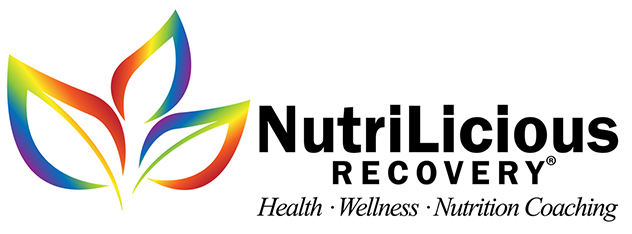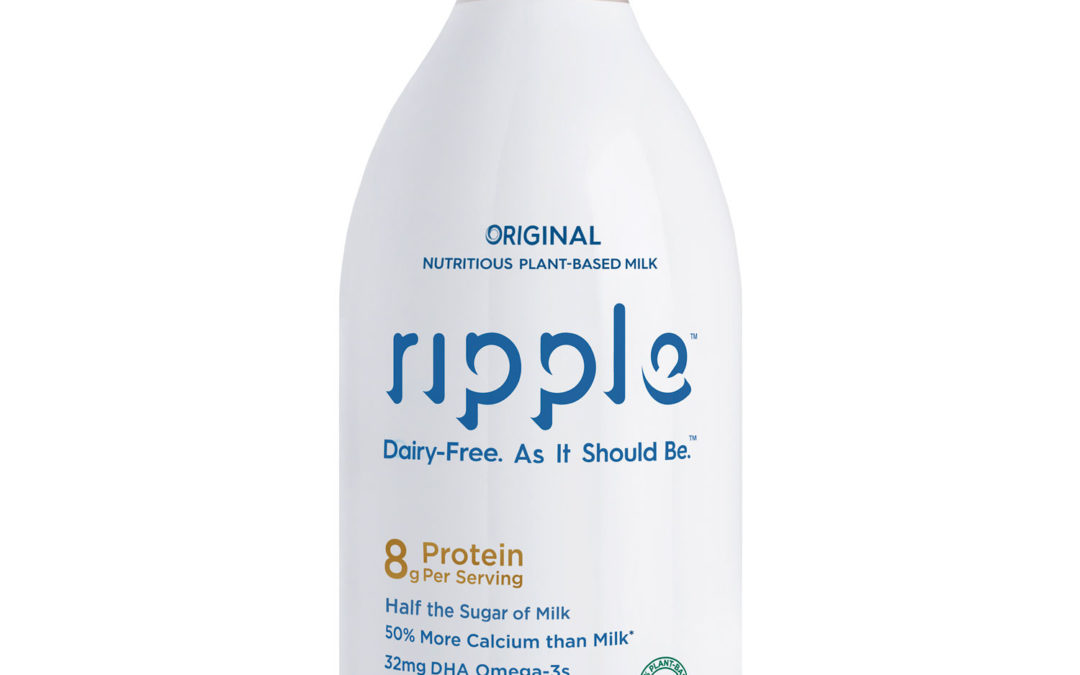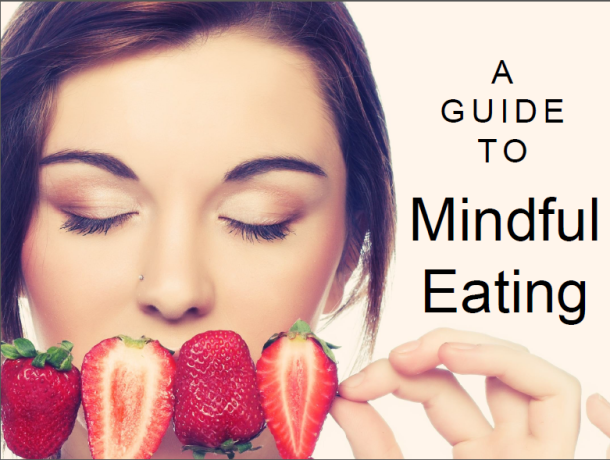I was recently asked what my favorite non-dairy milk was. I’ve been an early explorer of non-dairy alternatives for eating cereal with, or for lightening up my tea or coffee. You name it… I bet I’ve tried it. From store-bought brands of soy milk, almond milk, coconut milk, hemp milk, hazelnut milk, & cashew milk to home-made fresh almond milk varieties. I’ve tasted and experimented with each variety and I was satisfied with all my choices…. at least I thought I was satisfied… until I had a conversation with Niloy Phukan, Director of Sales for Ripple Foods.
It wasn’t until my conversation with him that I realized there was new competition in town that overcame some previous challenges in the non-dairy world. Could it be the true answer for all non-dairy milk drinkers in terms of taste, nutrition, health & sustainability?
Non-Dairy Milk Challenges
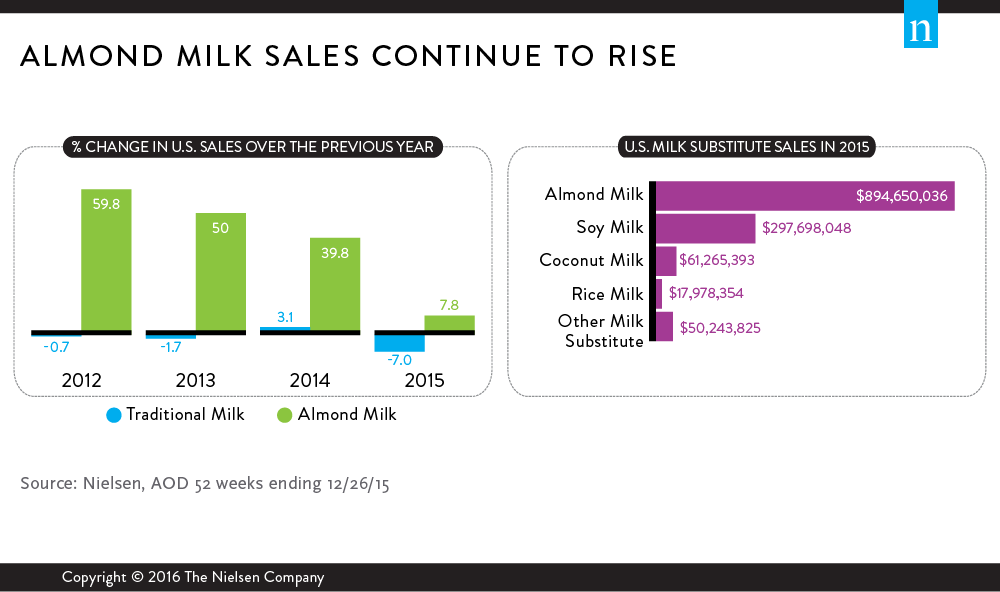
Almond milk (& other nut milks) seems very pure, ethical, and innocent. Well, at least for those that don’t have allergies! Ripple Foods has an informational campaign about almond milk production requirements: In terms of mass production, they claim it takes 60 gallons of water to produce 1 glass of dairy milk. It takes 20 gallons of water to produce 1 glass of almond milk. And it takes ½ gallon of water to produce 1 glass of their Ripple pea milk. So while they applaud almond milk’s eco-friendliness compared to dairy milk; they also point out their product as a clear winner of being eco-friendly.
Soy milk is controversial with the alleged threat of increased consumption of phyto-estrogens. The fear is that consuming soy-based products could be disrupting to the endocrine system (think thyroid gland). NOTE: I have yet to find an unbiased peer-reviewed scientific study proving soy proteins are human endocrine disruptors, but the discussion has been alive and strong for over a decade after many animal-based studies. If you love soymilk, drink it but limit yourself to 4oz. per day.
Coconut milk is a long-time favorite for desserts and smoothies because of its sweet yet light taste. Some take issue of it being the only non-dairy milk with saturated fat, but most understand it is a healthy choice. Last year the world experienced coconut challenges as the prices of coconut products soared with quantity limitations. Consumers were reminded that it may not be feasible to always have it on hand and that it is not a “green” solution to the non-dairy puzzle with product limitations, transportation issues, and negative environmental impacts.
Rice milk is not a big seller perhaps because of its high fermentable oligosaccharides, disaccharides, monosaccharides, and polyols (FODMAP) state. It means it has short chain carbohydrates that can’t be completely absorbed in the gastrointestinal (GI) tract and could be easily fermented causing GI stress. There is also the concern of arsenic and other heavy metals in rice processing.
Ripple Pea Milk is new to market (not well-known yet). By all notes thus far it has no sustainability issues being derived from US-based non-GMO yellow peas. They have patent-technology to isolate the protein allowing for a 0 – 2 gram carbohydrate product. Peas are not an endocrine disruptor. It is a “green” product with regards to water usage to derive it (93% less water than dairy milk).
Nutrition
An 8oz. glass of 2% dairy Milk has 122 calories, 5 g of fat, 11 g of carbs, and 8g of protein. From a nutritional viewpoint, Ripple milk boasts 8g of protein per 8oz. glass (the same as dairy), 50% more calcium than 2% dairy milk, more iron than 2% dair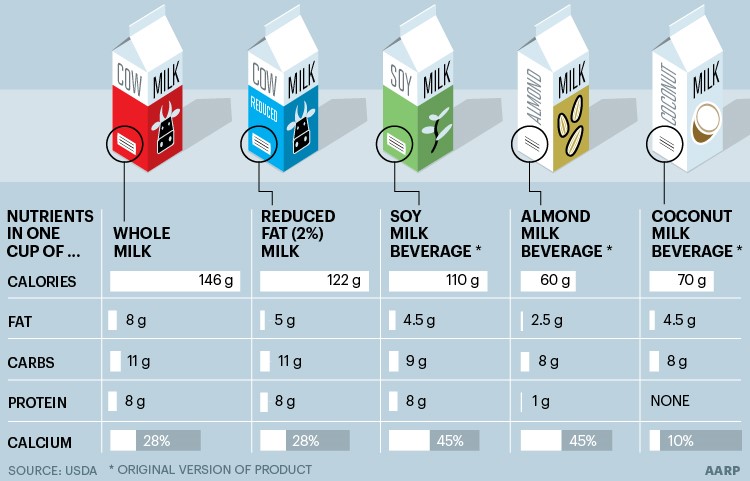 y milk, and a good source of vitamin D and DHA omega 3s. The unsweetened variety has 0 sugar, 0 carbs (patent pending technology to do this), and 4.5 g fat. The unsweetened vanilla has 2g carbs and 0 sugar.
y milk, and a good source of vitamin D and DHA omega 3s. The unsweetened variety has 0 sugar, 0 carbs (patent pending technology to do this), and 4.5 g fat. The unsweetened vanilla has 2g carbs and 0 sugar.
Availability & Taste
I looked for it at my local HEB grocery store, and the dairy representative said he couldn’t keep it on the shelf very long because it was so popular. I looked for it at my local Target, and was lucky to secure 2 bottles – one plain unsweetened and one chocolate. The chocolate one tastes like chocolate dairy milk, and the plain one tastes similar to Carnation instant milk. Since I primarily use non-dairy milk in the tea, I was a fan of the plain unsweetened variety. If you love your chocolate milk fix, note that there’s a new game in town!
From a Ripple point of view, there really is no nutritional equivalent… not even dairy milk. It is slated to become the LEADER of the non-dairy milk world. Available at select Target, HEB, Whole Foods, Sprouts, as well as many more stores soon to come – I’m quite certain! Ripple has also just released their half-&-half variety in some Targets and Whole Foods too! They plan on rolling out its yogurts soon so be on the watch!
